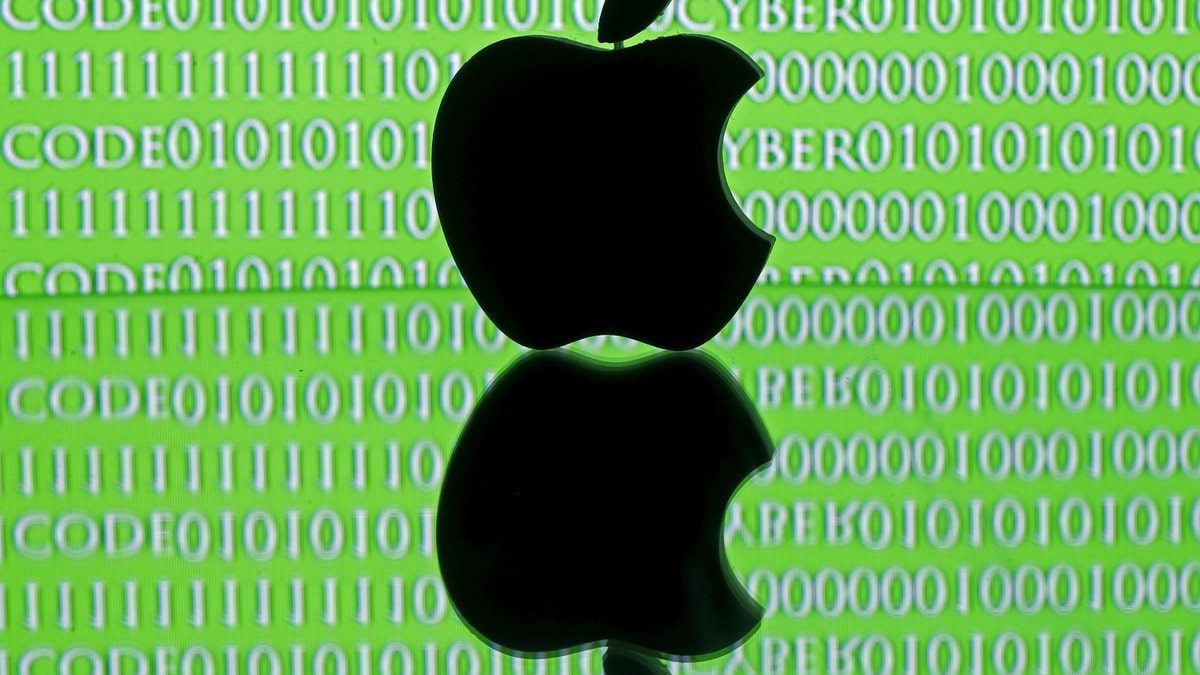
A 3D printed Apple logo is seen in front of a displayed cyber code in this illustration taken Feb. 26, 2016. (REUTERS/Dado Ruvic/Illustration)
Two weeks ahead of a scheduled court date, Apple continues to publicly battle the FBI's request to unlock one of its iPhones. Senior Vice President of Software Engineering Craig Federighi on Sunday penned an opinion piece for the Washington Post, which suggests that compliance will set mobile security back at least three years.
The U.S. Justice Department, he said, believes security on iOS 7 was "good enough," so Apple should roll back to the security level of that operating system.
"But the security of iOS 7, while cutting-edge at the time, has since been breached by hackers," Federighi wrote. "What's worse, some of their methods have been productized and are now available for sale to attackers who are less skilled by often more malicious."
Apple decided to encrypt its mobile operating system by default beginning with iOS 8, meaning device-level data is inaccessible even to Cupertino, so the company cannot turn over things like phone passcodes and iMessage chats to the feds.
But following a December terrorist attack in California, the government is itching to access an iPhone 5c issued to one of the shooters, Syed Rizwan Farook, by his employer, the San Bernardino Health Department.
The FBI wants Apple to create a new mobile operating system, which could disable a feature that wipes the gadget after 10 incorrect password guesses—"intentionally creating a vulnerability that would let the government force its way into an iPhone," Federighi said.
"Once created, this software—which law enforcement has conceded it wants to apply to many iPhones—would become a weakness that hackers and criminals could use to wreak havoc on the privacy and personal safety of us all," he added.
The tech titan is even willing to take its fight against the FBI over iPhone backdoors all the way to the Supreme Court, where it would have the support of numerous industry heavyweights.
Oral arguments are set for March 22 in federal court.
This article originally appeared on PCMag.com.




















